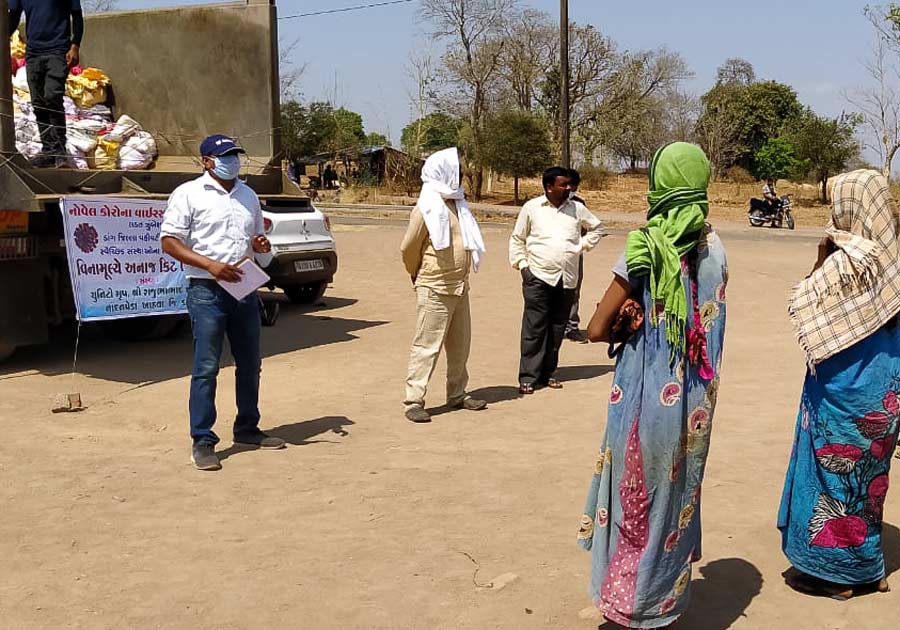In the vast tapestry of global spiritual traditions, the Baha’i Faith stands out for its emphasis on community building and its commitment to social justice. In India, a country characterized by its diverse cultural fabric, the principles of the Baha’i teachings have inspired numerous communities to galvanize their collective energies in the service of humanity. This article elucidates the intricate interplay between the Baha’i teachings and community responses in India, highlighting a narrative of service that is both poignant and transformative.
The Baha’i teachings articulate a vision of unity, advocating for the harmony of diverse peoples, religions, and cultures. In India, a nation steeped in myriad religious and spiritual currents, these teachings resonate profoundly. The rich ideological foundations of the Baha’i Faith encourage individuals and communities to transcend sectarian divides, fostering an atmosphere of mutual respect and understanding. This exhortation to unity compels every follower to engage actively in the betterment of society, singularly motivated by a desire to harmonize the diverse voices within the community.
In examining the role of local assemblies, the administrative bodies central to Baha’i governance, one discovers how these entities serve as catalysts for social action. These assemblies are not merely bureaucratic institutions; they embody the principles of consultation and collective decision-making, crucial tenets of Baha’i practice. In many Indian communities, local assemblies have assumed the role of facilitators, mobilizing resources and organizing educational initiatives aimed at improving literacy, health care, and economic opportunities. Fearless in addressing socio-economic challenges, they embrace a holistic approach that empowers every community member.
Moreover, the story of service in Indian Baha’i communities is enriched by the empowerment of individuals. Women, in particular, have been at the forefront of various initiatives, reflecting the Baha’i tenet of gender equality. Under this guiding principle, women have taken on leadership roles within community projects, spearheading efforts to educate girls and provide essential skills training. This shift not only augments the social fabric but also engenders a cycle of inspiration, where empowered women serve as role models for the younger generation.
Furthermore, the Baha’i commitment to service extends beyond mere humanitarian efforts; it encompasses a profound reliance on spiritual principles as guiding forces. Many Baha’is in India routinely engage in prayer and reflection, viewing their service not just as an obligation but as a spiritual practice. This confluence of the material and the spiritual nuances the motivations behind community service, imbuing actions with an intrinsic purpose. The resultant efforts are often marked by a sense of joy and fulfillment rather than mere duty, cultivating a deeper connection to the aspirations laid forth in the Baha’i teachings.
Communal gatherings serve as an essential platform within these communities, where Baha’is and non-Baha’is alike come together to discuss pressing social issues. These dialogues often illuminate the ways in which shared values can unite individuals from various backgrounds. The Baha’i Feast, a monthly gathering that combines devotional, administrative, and social components, exemplifies this spirit of unity. Through such gatherings, ideas are exchanged, friendships are nurtured, and collective resolve to address communal challenges is solidified.
In confronting common societal challenges—be it poverty, illiteracy, or communal strife—the Baha’i approach illustrates a distinctive manner of service. This approach is characterized by the adoption of innovative strategies that address the root causes of issues rather than merely the symptoms. For instance, in response to educational needs, Baha’is may initiate community-based learning programs that involve not only Baha’is but individuals from various faiths, fostering an inclusive atmosphere conducive to shared learning and growth.
One cannot overlook the pivotal role that youth play in advancing Baha’i teachings and community service initiatives in India. Guided by a vision of constructive engagement, young Baha’is are increasingly acting as torchbearers of change. Their unique capacity for creativity and passion manifests in various projects, including environmental awareness campaigns and social justice advocacy. The proactive involvement of youth brings a refreshing perspective, one that is vital for the rejuvenation of communities and instilling hope for a brighter future.
The interconnection of Baha’i principles and community service is particularly poignant in India’s rural regions. Here, the community-based initiatives undertaken are often tailored to the unique needs and aspirations of local inhabitants. These initiatives are celebrated for their grassroots nature, which allows for a familial atmosphere where each participant feels a genuine connection to the cause. The very essence of service lies in its rootedness within the local context, empowering individuals while honoring their cultural heritage.
In concluding this exploration of Baha’i practice in Indian communities, one discerns a palpable dedication to service, infused with spiritual significance. The unyielding commitment to unity, education, and empowerment forms the backbone of these communal endeavors. Through the lens of the Baha’i Faith, Indian communities are not merely responding to challenges—they are forging a comprehensive narrative of service that reflects the virtues of their beliefs. This rich tapestry of collective action serves not only to uplift immediate circumstances but also to inspire a vision of what humanity could achieve when united in purpose and spirit.
